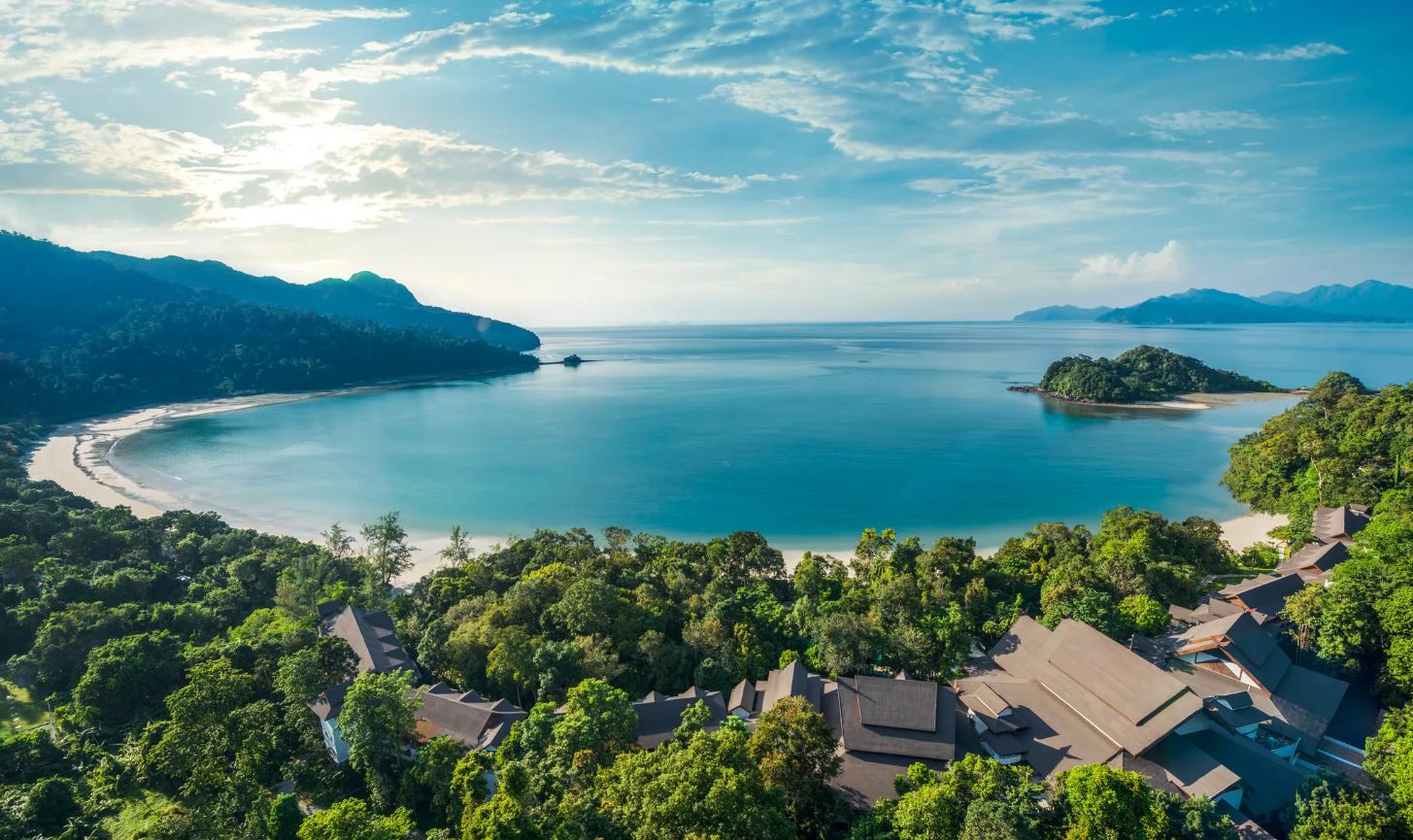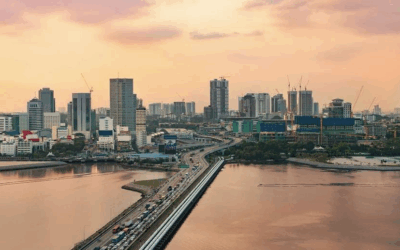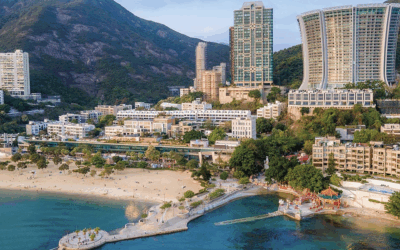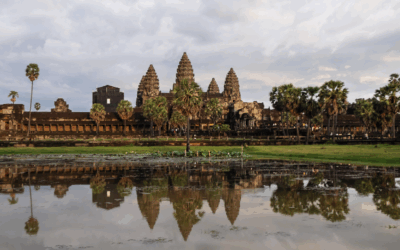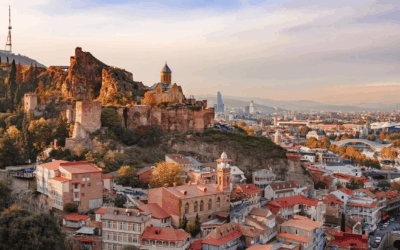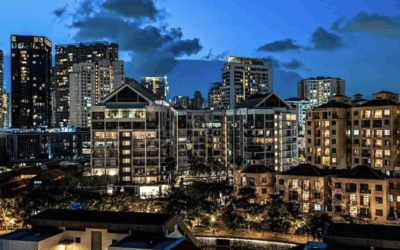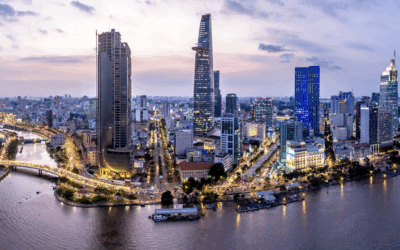Malaysia has long been a popular choice for expats and retirees alike. A high standard of living, along with simple procedures to get long-term visas and purchase land, certainly make it attractive.
Located between the Malay Peninsula and the island of Borneo, Malaysia ranks as the second-wealthiest country in Southeast Asia after Singapore.
Yet despite this, property values in KL are roughly the same as in Manila or Jakarta.
For many expats, choosing to live in Malaysia is the obvious choice. There are currently around 250,000 foreign expats living in Malaysia – nearly a whole percentage point of the country’s total population.
The country is known for its excellent healthcare system and high-quality education, making it an attractive option for families and retirees. It also helps that Malaysia is one of few Southeast Asian countries where foreigners can own land – not just a condo unit.
In this article, we’ll cover the main topics you need to know if you’re moving to Malaysia. We’ll dive into what it’s like to live in Malaysia as an expat, how to adapt to the lifestyle, and what cultural differences to expect.
Additionally, we’ll tour the most popular cities in Malaysia for expats and review ways to obtain a visa that’ll allow you to live here long-term.
How is Expat Life in Malaysia?
Living in Malaysia as an expat can be an exciting and rewarding experience. With a unique blend of cultures, delicious food, and a comfortable standard of living, any expat can live comfortably in Malaysia.
Malaysia is generally considered an affordable country to live in, especially compared to other expat destinations in Asia.
The cost of living in Malaysia varies depending on the city and lifestyle, but it’s possible to enjoy a comfortable lifestyle on a modest budget.
Groceries, transport, and dining out are relatively inexpensive, although imported goods and high-end dining can be expensive.
Housing and Rentals in Malaysia
Finding accommodation in Malaysia is relatively easy, with a range of options available, from high-end condos to modest apartment units.
Kuala Lumpur, Penang, and Johor Bahru are popular expat destinations, and there are plenty of rental options in all of these cities.
Using a real estate agent to find suitable accommodation that fits your budget and preferences is advisable. For this, websites like PropertyGuru and iProperty are good places to see what’s available on the market and get in touch with a realtor.
Currently, property values in central neighborhoods of Kuala Lumpur, like Mont Kiara and KLCC, are about US$4,000 per sqm if you’d like to purchase real estate here.
Second-tier cities like Penang and Johor Bahru, are considerably less expensive than the capital. Usually closer to US$2,000 per sqm if you’re buying a condo in a good location.
Transport in Malaysia
Public transport in Malaysia is efficient and affordable, with trains, buses, and taxis readily available in major cities.
The RapidKL and MyRapid systems in Kuala Lumpur and the KTM Komuter train system are popular transport options for both locals and expats.
Ride-hailing apps like Grab are also widely used and can be a convenient way to get around, although getting a service past 10PM at night is difficult in certain areas of Kuala Lumpur – let alone in Malaysia’s smaller cities.
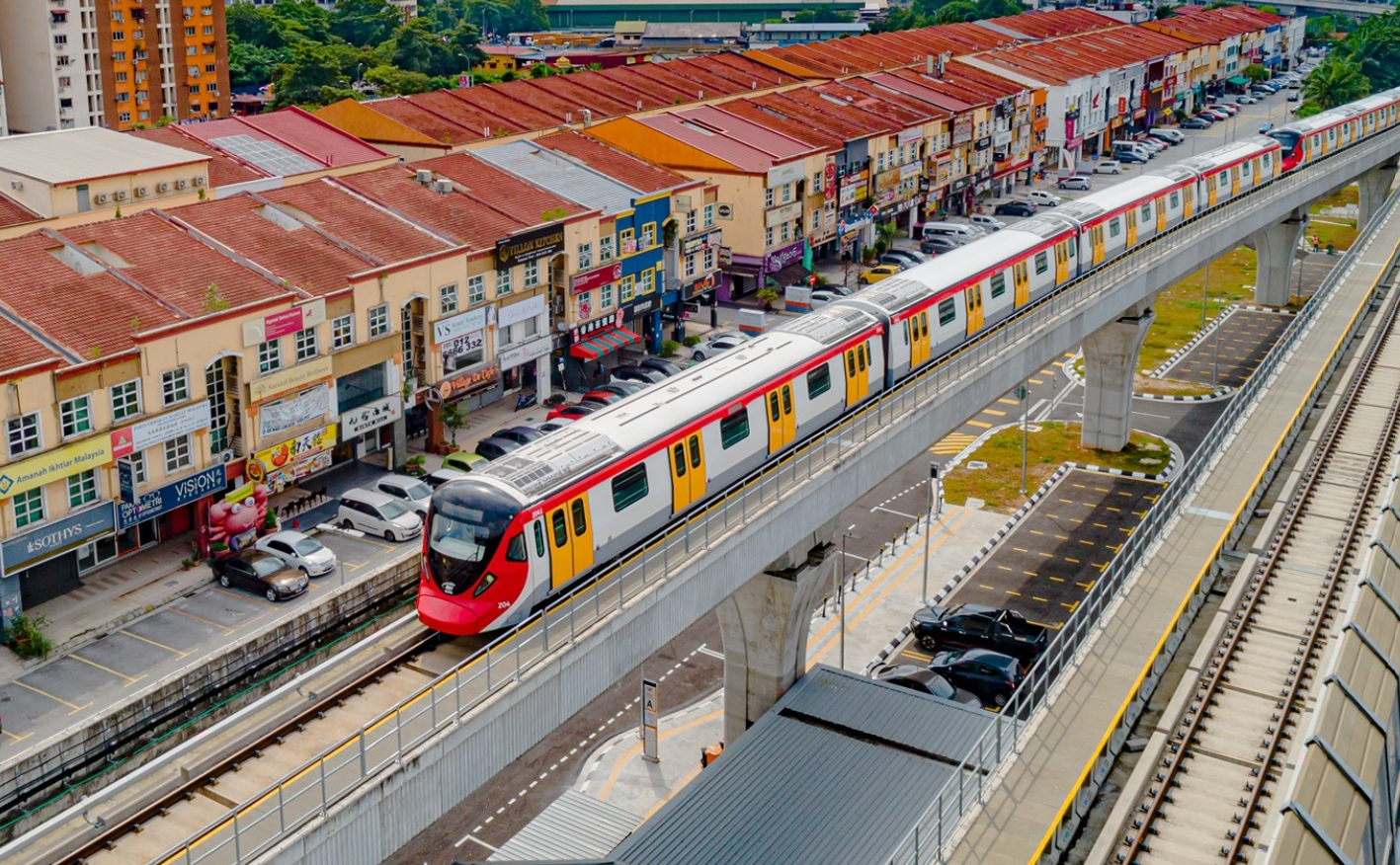
Kuala Lumpur’s rail system continues expanding across the Klang Valley, with similar systems planned in Penang and Johor.
Is Malaysia Safe?
Malaysia is generally a safe country, and violent crime is rare. You’ll find Kuala Lumpur safer than most large US or European cities, with CCTV cameras almost everywhere and regular police patrols.
Important sites and popular tourist areas also have police officers or security guards in the vicinity to ensure public safety.
Nonetheless, expats should take basic precautions such as avoiding certain areas at night and not flashing valuables in public.
Violent crime in Malaysia is rare, while petty crime is far more common. Pickpocketing and bag-snatching can occur, especially in crowded areas and tourist hotspots.
Expat Healthcare in Malaysia
Malaysia is widely regarded as one of the top medical tourism destinations in the world, offering world-class healthcare facilities, highly trained medical professionals, and affordable treatment options.
The country’s healthcare system is a mix of public and private sectors, with public healthcare facilities providing subsidized healthcare services to citizens and permanent residents, while private healthcare facilities cater to both local and international patients.
With over 200 private hospitals and clinics, one of the most significant advantages of Malaysia’s healthcare system is its affordability. Medical treatments in Malaysia are significantly cheaper than in Western countries while providing the same quality of care.
In addition to the affordability of healthcare, Malaysia’s medical professionals are highly trained and skilled. Many doctors and specialists in Malaysia have trained abroad and are fluent in English, which definitely makes things easier.
A few specific examples of Malaysia’s best hospitals include the Prince Court Medical Center in Kuala Lumpur, along with Pantai Hospital in Penang. You’ll find an excellent quality of care at these hospitals – and plenty more across the country.
Overall, Malaysia’s healthcare system offers high quality and affordability, making it an attractive destination for medical tourism and a reliable option for expats living in the country.
Schooling and Education
There are many international schools available in Malaysia. These schools offer a range of curricula, including American, British, and Australian.
While the tuition fees at Malaysia’s top international schools can be high, the quality standards are solid. These international schools offer a wide range of extracurricular activities and facilities.
Universiti Malaya (UM) is widely considered the best university in Malaysia. In fact, it’s ranked the top university in Southeast Asia, besides any of those in Singapore.
Ranking systems like QS consistently rank Universiti Malaya within the world’s top 100 universities; its 2025 edition ranks the university at #60, an increase of five places from last year.
Opening a Bank Account in Malaysia
Opening a bank account in Malaysia is straightforward as a foreign resident. Practically all major banks offer accounts to foreigners, assuming you’re on the MM2H or some other type of long-term visa.
It’s rarely possible to open a bank account as a tourist in Malaysia. You’ll need to provide proof of identification and residency, such as a passport and visa.
There are cases where, if you have an existing relationship with a regional bank’s branch outside of Malaysia, they’ll let you open an account here.
For example, OCBC might let you open an account in Malaysia as a non-resident foreigner if you have a large account with them in Singapore. That’s the exception, though, not the rule.
How to Get a Driver License in Malaysia
Expats can drive in Malaysia using their home country’s driver’s license for up to 90 days, after which they must obtain a Malaysian driver’s license.
Obtaining a Malaysian license involves passing written and practical driving tests. Generally it’s not difficult, and it’s also possible to convert a driver’s license in your home country.
Phone and Internet Services
Malaysia has a well-developed telecom infrastructure, and mobile phone and internet services are widely available.
The country’s major telecom providers are Maxis, Celcom, Telekom Malaysia, and Digi. Prepaid SIM cards are readily accessible at convenience stores and airports. High-speed internet is widely available nationwide, with providers such as TM, Maxis, and TIME.
Adapting to Malay Culture
Preparing for the cultural differences you will encounter in any country is essential to being an expat. Doing so helps decrease cultural shock and increase your ability to connect with and respect the locals and their culture.
So, what must you understand about Malay culture and customs before you go? Here are a few things to keep in mind:
- Malaysia is a multicultural nation with a population mix of Malay, Chinese, and Indian.
- Like any other Asian country, respect for elders and authority figures is highly valued in Malaysian culture.
- Islam is the predominant religion in Malaysia, and Muslims are expected to follow Islamic customs and practices.
- Malaysians value hospitality highly and often offer guests food and drinks as a sign of welcome and respect.
- Gift-giving is common in Malaysian culture, and gifts are often exchanged during festivals and special occasions.
- Dress modestly, especially when visiting religious sites or attending formal events.
- Avoid using your left hand when eating or offering items, as it is considered impolite.
- Public displays of affection are generally not accepted in Malaysian culture, especially between unmarried couples.
- Tipping isn’t customary in Malaysia, but rounding up the bill or leaving small changes is appreciated in certain situations.
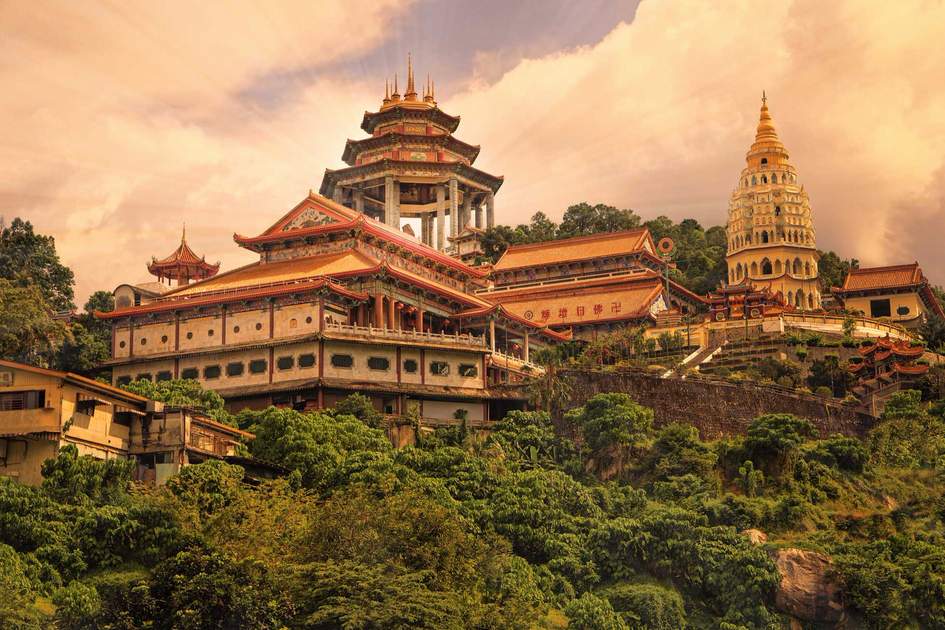
A majority of Malaysians are Muslim. That said, freedom of religion is very much allowed. You’ll find Buddhist temples, synagogues, and churches across the country.
Learning the Malay Language
The official language of Malaysia is Malay, although English is widely spoken, especially in business and education. Other languages spoken in the country include Chinese and Tamil.
While many Malaysians speak English, learning the local language (Malay) can be very helpful in adapting to the culture and making connections with locals.
Because it uses Latin script, Malay is a relatively easy language to learn – compared to others in Southeast Asia. You’ll find many resources available for language learning.
Daily Expat Life in Malaysia
Daily life in Malaysia may be different from what you are used to. Being open to new experiences and approaching everyday life with curiosity and adaptability is vital.
For example, weather in Malaysia is extremely hot and humid for those unfamiliar with that type of climate. You might not be used to hearing the call to prayer at 5AM in the morning either.
Malaysians are usually friendly and welcoming to expats. That said, making meaningful connections and forming close friendships with the locals can take some time.
Joining clubs or organizations related to your interests is always an excellent way to meet new people and build connections.
Working as a Foreigner in Malaysia
Being punctual and respectful of hierarchy and seniority in the Malaysian workplace is essential.
Face-saving is also a key cultural concept; avoiding confrontational behavior in the workplace is mandatory. While appreciated, constructive criticism is better given in private, as well.
Adapting to the Malay way of life requires an open-minded and respectful approach to cultural differences.
By taking the time to understand the local culture, learning the language, and being adaptable, expats can fully embrace all that Malaysia has to offer.
Finding a job as an expat in Malaysia is generally difficult, and it’s highly recommended that you secure a job before moving here full-time.
Best Cities in Malaysia for Expats
Malaysia is one of the best countries for foreigners looking to buy real estate in Asia because you can own freehold property here.
If you’re serious about investing here, our guide on how to invest in Malaysian real estate includes full details about the cities listed below.
For expats who simply want to live here, here are the highlights of each town if you are considering moving to Malaysia.
Kuala Lumpur
Malaysia’s capital city, Kuala Lumpur, is a popular destination for expats due to its vibrant culture and thriving business scene.
Kuala Lumpur offers a range of housing options, from high-rise apartments to spacious homes, and has excellent transportation options, including a modern light rail system.
Generally, Kuala Lumpur’s cost of living is lower than in many other major Asian cities. Enjoying a high quality of life as an expat without breaking the bank is possible here.
Johor Bahru
Johor Bahru is a major city in southern Malaysia across from Singapore’s border. The city is known for its affordable housing options, with many expats choosing to live in gated communities or condominiums.
Increasingly, people who work in Singapore are choosing to live in Johor and commute daily. Rental prices in Johor Bahru cost a fraction compared to anything you’ll ever find in Singapore.
While definitely not as cosmopolitan as Singapore, you’ll still find a bustling city center in Johor with shopping, dining, and several large malls. There are international schools and a sizable expat community here.
Penang
Penang is an island off the northwest coast of Malaysia and is a popular destination for expats looking for a more laid-back lifestyle. The island has a rich cultural heritage, and many of its historic buildings and neighborhoods have been preserved.
The cost of living in Penang is lower compared to Kuala Lumpur, and expats can enjoy a high quality of life at an affordable price.
The island is known for its excellent food, with many expats and locals enjoying street food and local cuisine. The island also has dozens of international schools with a large, active expat community.
Langkawi
Well-known for its beautiful beaches and natural scenery, Langkawi is an island located off the northwest coast of Malaysia and is a popular tourist destination.
Langkawi offers a relaxed lifestyle with a low cost of living and a warm climate all year-round. The main downside of this charming island? Real estate options don’t come by often.
You won’t find too many living choices or property for sale here, and much of the island consists of national park.
While Langkawi does have international schools, expat families with school-aged children may find it more challenging to find suitable educational options.
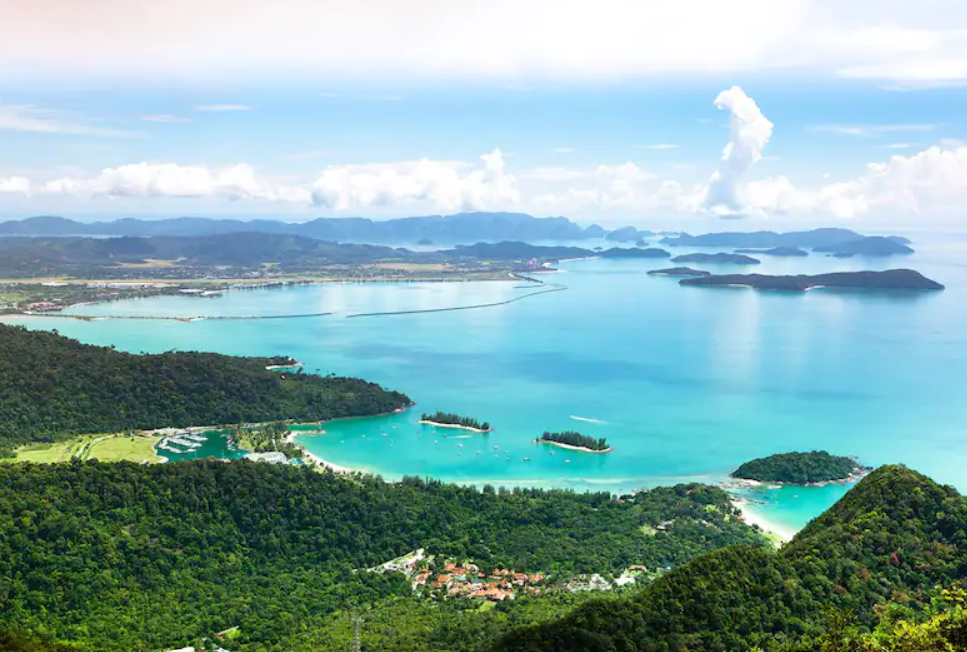
Langkawi would be a great place to work as a digital nomad or retire. The problem is that not much housing is available here – especially if you’re looking to buy as a foreigner.
Malacca
Malacca is a historic city located on the west coast of Malaysia and is a UNESCO World Heritage Site. The city has a rich cultural heritage, blending Chinese, Malay, and European influences.
The cost of living in Malacca is generally lower than in many other major cities in Malaysia, and the town offers a range of housing options, from apartments to historic homes.
The city is known for its cultural attractions, including museums, temples, and churches, and has a relaxed pace of life. However, expats looking for a more vibrant nightlife or business scene may find the city too quiet.
Kota Kinabalu
Kota Kinabalu, commonly referred to as “KK,” is the capital city of Sabah in East Malaysia.
For the past decade or so, Kota Kinabalu has remained one of the fastest-growing cities in the whole county.
You won’t find lots of multinational firms doing business in Kota Kinabalu, and probably won’t be living here if you’re bogged down to work. It’s a great choice if you’re a retiree or otherwise location independent though.
Besides that, there are plenty of housing options in KK, from apartments to villas. Local cuisine, and in particular seafood, is excellent and known as a main staple here.
Kuching
Kuching is a laid-back city popular with expats due to its low cost of living, friendly locals, and good food.
The city is surrounded by rainforest and offers easy access to outdoor activities such as hiking and wildlife watching. Kuching’s expat community is small but tight-knit, with many social opportunities through events and clubs.
Ipoh
Ipoh is a smaller city known for its food and colonial architecture. It has a slower pace of life than some of Malaysia’s larger cities, which can appeal to expats looking for a quieter lifestyle.
The cost of living in Ipoh is relatively low, and the city is well-connected to other parts of Malaysia by road and rail.
Cameron Highlands
The Cameron Highlands is a popular destination for expats looking to escape the heat and humidity of Malaysia’s cities.
Known for its tea plantations and hiking trails, you’ll find many outdoor activities in the Cameron Highlands, such as cycling and golf.
Living costs are higher in the Cameron Highlands than elsewhere in Malaysia – and space is limited. Yet the cooler climate and beautiful scenery make it a popular choice for expats.
Perhentian Islands
The Perhentian Islands are a pair of small islands off the east coast of Malaysia that are popular with expats seeking a quiet, laid-back lifestyle.
As with the other islands on this list, the Perhentians are home to beautiful beaches and coral reefs.
But again, do keep in mind that the cost of living on any island in Malaysia is higher than on the mainland.
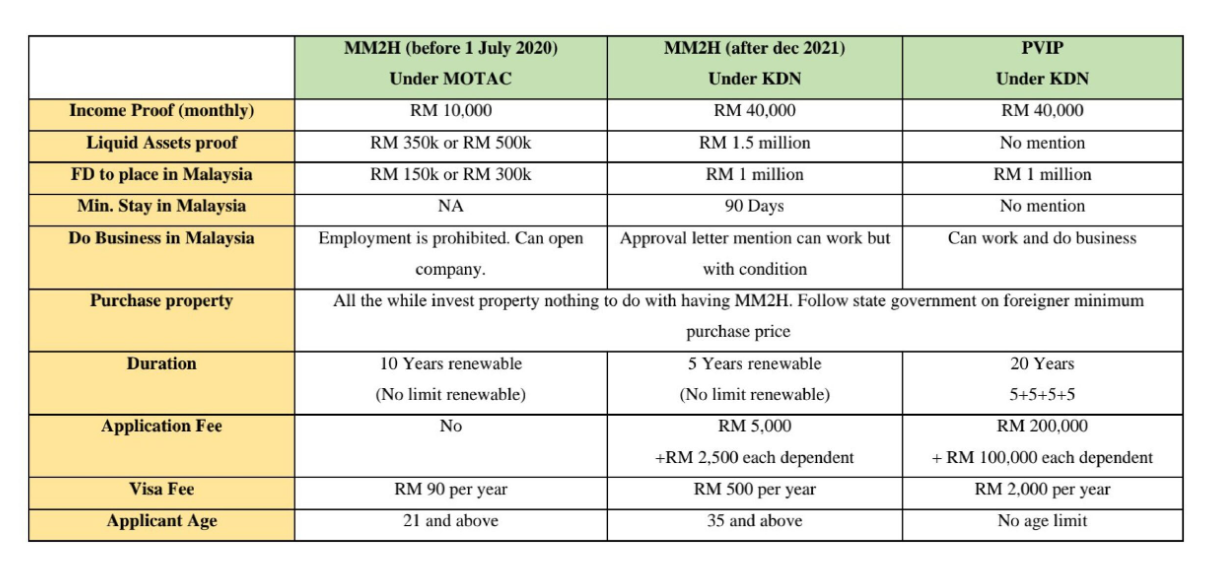
A side-by-side comparison of the PVIP, MM2H, and the old MM2H program requirements.
Long-Term Visas in Malaysia
Compared to elsewhere in Asia, Malaysia is noticeably more open to foreign residents. You’ll have an easier time getting a visa here than anywhere else in the region – except maybe Cambodia or Thailand.
The Malaysia My Second Home (MM2H program) was Southeast Asia’s first investment visa scheme and has continuously operated since the early 1990s.
Up until recently, it was the only way you could live in Malaysia on a permanent basis. Nowadays, you also have the Premium Visa (PVIP) program, arguably an even better option if you’re a wealthy investor.
Below you’ll find a quick overview of Malaysia’s two investment residency options.
Malaysia My Second Home (MM2H)
The Malaysia My Second Home program is a popular residency program for foreigners who want to live here full-time.
Specifically, it provides a 5-year renewable visa to applicants, allowing them to stay and live in Malaysia without a work permit.
This program requires a minimum fixed deposit of RM1,000,000 ($250,000) to be made in a Malaysian bank account, which can’t be withdrawn while you’re still on the MM2H visa.
In addition, applicants must show a minimum monthly income requirement of RM40,000 ($10,000) to prove they can support themselves while living in Malaysia.
It’s worth mentioning that the MM2H program was changed significantly back in 2022. The fixed deposit investment amount was doubled from RM500,000 to RM1,000,000, and the income requirement was quadrupled from RM10,000 to RM40,000.
Another notable change to MM2H is the new residency requirement, which stipulates that applicants must spend at least 90 days in Malaysia annually to maintain their visa.
Despite the changes, the MM2H program remains an attractive option for many expats, as it provides a relatively easy way to obtain long-term residency in Malaysia, a country known for its low cost of living and welcoming people.
However, the increased financial requirements and residency obligations absolutely make the program less accessible than it was previously.
Premium Visa Program (PVIP)
The Premium Visa Program (PVIP) was introduced in 2022 as a new option for foreigners who wish to live in Malaysia. Like the MM2H program, the PVIP provides a long-term visa for eligible applicants.
The base requirements for the PVIP program are similar to the MM2H program in terms of the minimum fixed deposit investment amount (RM1 million) and the monthly income requirement (RM40,000).
However, there’s an additional government fee of RM200,000 for the principal applicant and RM100,000 for each dependent, which makes the PVIP program more expensive than MM2H.
One significant advantage of the PVIP program is that no residency requirement is needed to maintain the visa. This means that applicants don’t need to spend a minimum amount of time in Malaysia yearly to keep their visa valid.
That’s in contrast to the MM2H program, which now requires a minimum physical presence of 90 days per year in Malaysia.
Yet another crucial difference between the PVIP and MM2H programs is the minimum age requirement. While the MM2H program requires applicants to be at least 35, there isn’t any minimum age requirement for the PVIP program at all.
Overall, the PVIP program offers an attractive option for foreigners who want to live in Malaysia without the residency obligations of the MM2H program.
However, the additional processing fees make it a more expensive alternative, which may be a barrier for some.
Conclusion: Is Moving to Malaysia a Good Idea?
In conclusion, Malaysia offers a unique blend of culture, beauty, and affordability, making it an attractive destination for expats worldwide.
Kuala Lumpur and Penang are popular among expats for their vibrant culture, excellent healthcare, and affordable cost of living.
Meanwhile, the smaller towns of Kuching, Ipoh, and Malacca offer a more relaxed and laid-back lifestyle.
The ability to actually live somewhere is one important part of moving abroad. In that regard, the MM2H and PVIP both which provide a pathway for anyone with enough cash to live here on a full-time basis.
While the recent changes to the MM2H program make it less attractive, the PVIP program offers a more flexible option for those who can afford the additional processing fees.
Overall, Malaysia is a solid choice to live for expats who are looking for an affordable and high-quality lifestyle in a unique cultural setting.
It’s no surprise that Malaysia continues gaining ground as top destination for well-paid expats and retirees alike.
FAQs: Living in Malaysia
Why Do Expats Choose to Live in Malaysia?
Malaysia is a popular destination for expats due to its high standard of living, affordable cost of living, and welcoming culture. The country offers excellent healthcare, high-quality education, and a diverse mix of cultures, making it attractive for families, retirees, and professionals alike.
Additionally, Malaysia is one of the few Southeast Asian countries where foreigners can own land, which adds to its appeal as a long-term residence option.
How Much is the Cost of Living in Malaysia?
Malaysia is generally considered an affordable place to live compared to other expat destinations in Asia. The cost of living varies depending on the city and lifestyle, but essentials such as groceries, transportation, and dining out are relatively inexpensive.
However, imported goods and high-end dining can be costly. Expats can enjoy a comfortable lifestyle on a modest budget, especially in cities like Kuala Lumpur, Penang, and Johor Bahru.
Where Are the Best Cities to Live in Malaysia?
Some of the most popular cities for expats in Malaysia include:
- Kuala Lumpur: The capital city, known for its modern infrastructure, vibrant nightlife, and business opportunities.
- Penang: A cultural and culinary hub with a relaxed lifestyle, popular among retirees.
- Johor Bahru: Close to Singapore, making it ideal for those who work across the border but prefer Malaysia’s lower cost of living.
Each city offers unique advantages, so the best choice depends on personal preferences and lifestyle needs.
What Visa Options Are Available for Expats in Malaysia?
Foreigners looking to live in Malaysia long-term can apply for various visa programs, including:
- Malaysia My Second Home (MM2H) Visa: A long-term visa for retirees and investors, requiring financial proof and a fixed deposit.
- Premium Visa Program (PVIP): A newer option offering more flexibility for wealthy investors.
- Work Visas: Available for professionals with job offers from Malaysian companies.
Each visa has different requirements, so it’s essential to determine which one best suits your situation before applying.
Is Malaysia Safe to Visit and Live In?
Yes, Malaysia is generally considered a safe country for expats. Violent crime is rare, and major cities like Kuala Lumpur have extensive security measures, including CCTV surveillance and regular police patrols.
However, like in any country, petty crimes such as pickpocketing can occur in crowded areas. Expats are advised to take basic precautions, such as avoiding poorly lit areas at night and keeping valuables secure when in public.

